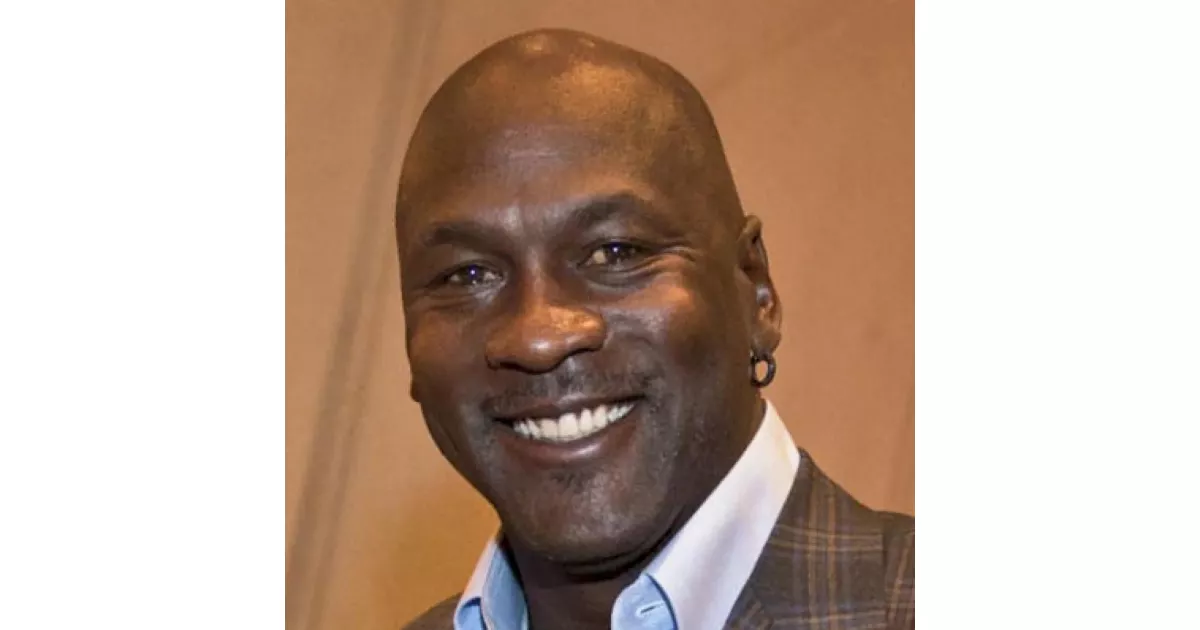From career breakthroughs to professional milestones, explore how Michael Jordan made an impact.
Michael Jordan, widely considered one of basketball's greatest players, significantly boosted the NBA's global popularity in the 80s and 90s. During his 15 seasons (1984-2003), he secured six NBA championships with the Chicago Bulls. Beyond basketball, Jordan is a successful businessman and minority owner of the Charlotte Hornets. His estimated net worth is $3.8 billion as of 2025, making him one of the world's wealthiest celebrities.
1976: ABA-NBA Merger
Since 1976, the year of the ABA–NBA merger, Michael Jordan and Scottie Pippen are the only two players to win six NBA Finals playing for one team.
1980: Improvement to Bulls
During his rookie 1984–85 season with the Bulls, Jordan helped the Bulls improve from 27–55 to 38–44 and qualify for the postseason for the first time since the 1980–81 season
1981: McDonald's All-American Game Selection
In 1981, as a senior, Michael Jordan was selected for the McDonald's All-American Game, where he scored 30 points.
1982: Game-Winning Shot in NCAA Championship
In 1982, Michael Jordan made the game-winning jump shot in the NCAA Championship game against Georgetown, a moment he described as a major turning point in his basketball career.
1982: National Championship with Tar Heels
In 1982, Michael Jordan, as a freshman, was a member of the North Carolina Tar Heels' national championship team.
1983: Jordan Debuts for U.S. National Team and Wins Gold
In 1983, Michael Jordan debuted as a college player for the U.S. national basketball team at the Pan American Games in Caracas, Venezuela, leading the team in scoring with 17.3 ppg and winning the gold medal.
1983: Pan American Games Gold Medal
In 1983, Michael Jordan won a gold medal as part of the United States national team at the Pan American Games.
1984: Jordan Joins the NBA
In 1984, Michael Jordan began his 15-season NBA career, marking a pivotal moment in the sport's history.
1984: Jordan Drafted by the Bulls
In 1984, Michael Jordan was drafted by the Chicago Bulls as the third overall pick, marking the beginning of his professional career with the team.
1984: Drafted by the Chicago Bulls
In 1984, Michael Jordan was selected by the Chicago Bulls with the third overall pick in the NBA draft.
1984: Jordan Wins Olympic Gold Medal
In 1984, Michael Jordan won an Olympic gold medal, starting a successful international career.
1984: Jordan Wins Gold at the Summer Olympics
In 1984, Michael Jordan won another gold medal at the Summer Olympics, averaging 17.1 ppg and leading the U.S. team in scoring.
1984: Nike creates the Air Jordan
In 1984, Nike created a signature shoe for Michael Jordan called the Air Jordan, which led to the creation of the Jordan Brand.
April 20, 1986: Jordan's 63-Point Playoff Record
On April 20, 1986, after Michael Jordan set the single-game playoff record of 63 points against the Boston Celtics, Larry Bird described him as "God disguised as Michael Jordan".
1986: Start of Jordan's Durable Playing Streak
From 1986-87, Michael Jordan started a long streak of not missing four or more games in a season, showcasing his durability as a player.
1986: Prolific Scoring Season
In the 1986-87 season, Michael Jordan had one of the most prolific scoring seasons in NBA history, becoming the only player other than Wilt Chamberlain to score 3,000 points in a season.
1987: Jordan Wins Slam Dunk Contest
In 1987, Michael Jordan won the Slam Dunk Contest, showcasing his athletic leaping ability and influencing a generation of young players.
1987: First League MVP Award
In 1987–88 season, Michael Jordan won his first league MVP Award and was named the NBA Defensive Player of the Year.
1988: Jordan's Effective Field Goal Percentage
In 1988, Michael Jordan began a string of seasons with high effective field goal percentages, showcasing his offensive efficiency.
1988: Jordan Wins Back-to-Back Slam Dunk Contest Championship
In 1988, Michael Jordan won his second consecutive Slam Dunk Contest championship, further solidifying his influence on young players and his legacy in the NBA.
1989: Improved Three-Point Shooting Season
During the 1989-90 season, Michael Jordan showed improvement in his three-point shooting, achieving a 37% success rate.
1989: Team on the Rise
In the 1989-90 season, the Bulls entered as a team on the rise, with a core group of Jordan, Pippen, and Grant.
March 28, 1990: Career-High 69 Points
On March 28, 1990, Michael Jordan scored a career-high 69 points in a 117–113 road win over the Cavaliers.
1990: Regular Season Success
In 1990, Michael Jordan won his second MVP award, averaging 31.5 points per game with a 53.9% shooting accuracy, 6.0 rebounds per game, and 5.5 assists per game. The Bulls secured the first position in their division for the first time in sixteen years and achieved a franchise record with 61 regular-season wins.
1990: Acquisition of Nissan dealership
In 1990, Michael Jordan's automotive group acquired a Nissan dealership in Durham, North Carolina.
1991: Continued Dominance and Second MVP
In 1991, Jordan continued his dominance with the Bulls, achieving a 67-15 record and winning his second consecutive MVP award with averages of 30.1 points, 6.4 rebounds, and 6.1 assists per game, while shooting at 52%.
1991: First NBA Title with the Bulls
In 1991, Michael Jordan won his first NBA title with the Chicago Bulls, solidifying his status as a top player.
1992: High Scoring Season
In 1992, Jordan had a 32.6 points per game, 6.7 rebounds per game, and 5.5 assists per game campaign, including a second-place finish in Defensive Player of the Year voting.
1992: Jordan Continues High Field Goal Percentage
In 1992, Michael Jordan continued his streak of seasons with a high field goal percentage, demonstrating his consistent offensive performance.
1992: NBA Title and Olympics Gold Medal
In 1992, Michael Jordan secured another NBA title with the Bulls and won a gold medal with the United States national team at the Summer Olympics. He also played for the United States national team during the 1992 Tournament of the Americas.
1992: First Game 7 Since 1992
In 1997, the Bulls won the Eastern Conference Championship for a third straight season, including surviving a seven-game series with the Indiana Pacers in the Eastern Conference Finals; it was the first time Jordan had played in a Game 7 since the 1992 Eastern Conference Semifinals with the New York Knicks.
1992: Strong Three-Point Shooting Season
In the 1992-93 season, Michael Jordan maintained a strong three-point shooting performance, achieving a 35% success rate.
October 6, 1993: Jordan Announces Retirement
On October 6, 1993, Michael Jordan announced his retirement from basketball, citing a loss of desire to play. He later revealed that his father's murder three months prior influenced his decision, though exhaustion from basketball also played a key role.
1993: Third NBA Championship and Finals MVP
In 1993, Michael Jordan and the Bulls won their third NBA championship, with Jordan averaging a Finals-record 41.0 points per game and winning his third consecutive Finals MVP award. Despite a stellar regular season, Jordan lost the MVP award to Charles Barkley.
1993: Rumors of Secret Suspension for Gambling Spread
In 1993, Michael Jordan retired from the NBA. Although denied by the league commissioner, rumors spread that it was a secret suspension by the league for gambling.
1993: Third Consecutive NBA Title and Retirement
In 1993, Michael Jordan won his third consecutive NBA title with the Bulls and then abruptly retired to play Minor League Baseball.
1994: Jordan's Three-Point Percentage Increase
From 1994 to 1997, Michael Jordan increased his three-point percentage, although the three-point line was temporarily moved inwards during those years.
1994: Bulls without Jordan
In 1994, the Bulls went 55-27 without Jordan in the lineup and lost to the New York Knicks in the second round of the playoffs.
1994: Referenced Return from First Retirement
The text references Michael Jordan's first retirement in 1994 and his return to the NBA, where he played only 17 games before returning to play a total of 60 games.
March 1995: Return to the Bulls
In March 1995, Jordan decided to quit baseball and returned to the Bulls midway through the season.
March 18, 1995: Jordan Announces Comeback
On March 18, 1995, Michael Jordan announced his return to the NBA with a simple two-word press release: "I'm back."
March 28, 1995: 55 Points at Madison Square Garden
On March 28, 1995, Michael Jordan scored 55 points against the New York Knicks at Madison Square Garden, marking a significant moment in his comeback season after his hiatus from the NBA.
1995: Aggressive Training
In 1995, Jordan trained aggressively for the 1995-96 season after the playoff defeat.
1995: Return to the Bulls
In 1995, Michael Jordan returned to the Chicago Bulls after a brief stint in Minor League Baseball.
1995: Acquisition of Lincoln-Mercury dealership
In 1995, Michael Jordan's automotive group acquired a Lincoln-Mercury dealership.
1996: Fourth NBA Championship with the Bulls
In 1996, Michael Jordan led the Bulls to another NBA championship and a record of 72 regular season wins.
1996: Starred in Space Jam
In 1996, Michael Jordan played himself in the comedy film Space Jam, which became a box office success.
1996: 69-13 Record
In the 1996-97 season, the Bulls stood at a 69–11 record but ended the season by losing their final two games to finish the year 69–13, missing out on a second consecutive 70-win season.
1997: Filming of NBA season for documentary
During the 1997–98 NBA season, an NBA Entertainment crew shot candid film of Michael Jordan and his teammates' off-court activities for use in a documentary, which was later released as The Last Dance in 2020.
1997: Jordan's Three-Point Percentage Increase
From 1994 to 1997, Michael Jordan increased his three-point percentage, although the three-point line was temporarily moved inwards during those years.
1997: Fifth NBA Championship with the Bulls
In 1997, Michael Jordan and the Chicago Bulls won their fifth NBA championship.
1997: "The Flu Game" and Fifth Finals MVP
In 1997, despite being ill during Game 5 of the NBA Finals, Jordan scored 38 points, including the game-winning three-pointer. The Bulls won the series, and Jordan received his fifth Finals MVP award. He also posted the first triple-double in All-Star Game history.
June 14, 1998: Clutch Plays in Game 6
On June 14, 1998, during Game 6 of the NBA Finals, Michael Jordan executed a series of clutch plays in the final minute, including a shot over several Jazz defenders, cutting Utah's lead to 86-85. He then stole the ball from Malone.
1998: Jordan's Clutch Performance in the Finals
By 1998, during the season of his Finals-winning shot against the Jazz, Michael Jordan was well known throughout the league as a clutch performer, always asking for the ball in crucial moments.
1998: Sixth NBA Championship with the Bulls
In 1998, Michael Jordan led the Chicago Bulls to their sixth NBA championship.
1998: Sixth NBA Championship and Finals MVP
In 1998, Michael Jordan made the climactic shot of his Bulls career with 5.2 seconds left in Game 6 of the NBA Finals, leading the Bulls to their sixth NBA championship. Jordan was voted Finals MVP for a record sixth time, averaging 33.5 points per game in the series.
1998: Jordan plays the opening game of the 1998 NBA Finals
In 1998, Michael Jordan played in the opening game of the NBA Finals. His jersey from this game was later sold for a record amount.
1998: NBA playoffs featured in IMAX documentary
The 1998 NBA playoffs, specifically Michael Jordan's career with the Chicago Bulls, were featured in the 2000 IMAX documentary Michael Jordan to the Max.
January 13, 1999: Second Retirement
On January 13, 1999, Michael Jordan retired for the second time, citing Phil Jackson's contract expiring, the pending departures of Scottie Pippen and Dennis Rodman, and an owner-induced lockout of NBA players.
January 1999: Jordan Claims 99.9% Certainty of No NBA Return
In January 1999, Michael Jordan claimed he was "99.9% certain" he would never play another NBA game, marking a seemingly definitive end to his basketball career at that time.
January 19, 2000: Returns to NBA as Part Owner of the Wizards
On January 19, 2000, Michael Jordan returned to the NBA not as a player but as part owner and president of basketball operations for the Washington Wizards.
2000: IMAX documentary released
In 2000, Michael Jordan was the subject of an IMAX documentary about his career with the Chicago Bulls, especially the 1998 NBA playoffs, titled Michael Jordan to the Max.
September 25, 2001: Jordan Announces Return to NBA with Wizards
On September 25, 2001, Michael Jordan announced his return to the NBA to play for the Washington Wizards, intending to donate his salary to 9/11 relief efforts.
2001: Start of Celebrity Invitational
In 2001, Michael Jordan began hosting an annual golf tournament, the Michael Jordan Celebrity Invitational, which raised money for various charities.
2001: Return to the NBA with the Wizards
In 2001, Michael Jordan returned to the NBA, joining the Washington Wizards for two seasons.
2001: Jordan Considers NBA Comeback
In 2001, inspired by Mario Lemieux's NHL comeback, Michael Jordan expressed interest in returning to the NBA. He trained extensively and hired Doug Collins as the Washington Wizards' coach, hinting at a potential comeback.
2001: Kwame Brown Drafted
In the 2001 NBA draft, Jordan used the first pick to select high school student Kwame Brown, who did not meet expectations and was later traded.
2002: Wizards trade Richard "Rip" Hamilton
In 2002, while Jordan was with the Wizards, Richard "Rip" Hamilton was traded for Jerry Stackhouse, a decision that may have been influenced by Jordan's mixed results during his tenure. At the time, Jordan was not technically the Director of Basketball Operations.
February 21, 2003: Jordan Scores 43 Points at 40 Years Old
On February 21, 2003, Michael Jordan became the first 40-year-old to score 43 points in an NBA game during his stint with the Washington Wizards.
April 16, 2003: Jordan Plays Final NBA Game
On April 16, 2003, Michael Jordan played his final NBA game in Philadelphia, scoring 13 points. He received a standing ovation after being intentionally fouled out of the game.
May 7, 2003: Jordan Fired by Wizards Owner
On May 7, 2003, Abe Pollin, owner of the Washington Wizards, fired Michael Jordan from his position as Director of Basketball Operations.
2003: Jordan's NBA Retirement
In 2003, Michael Jordan concluded his professional basketball career after 15 seasons in the NBA.
June 15, 2006: Jordan Buys Stake in Charlotte Bobcats
On June 15, 2006, Michael Jordan purchased a minority stake in the Charlotte Bobcats (later known as the Hornets), becoming the team's second-largest shareholder and taking control over basketball operations.
2006: Part-Owner of Charlotte Bobcats
In 2006, Michael Jordan became part-owner and head of basketball operations for the Charlotte Bobcats (later renamed the Hornets).
2008: Yearly endorsement income
In 2008, Michael Jordan's yearly income from endorsements was estimated to be over $40 million.
2008: Chief Wish Ambassador
In 2008, the Make-A-Wish Foundation named Michael Jordan its Chief Wish Ambassador.
2009: Closure of Lincoln-Mercury dealership
In 2009, Michael Jordan's Lincoln-Mercury dealership closed.
February 2010: Jordan Seeks Majority Ownership of Bobcats
In February 2010, reports surfaced that Michael Jordan was seeking majority ownership of the Charlotte Bobcats.
2010: Controlling Interest in Charlotte Hornets
In 2010, Michael Jordan bought a controlling interest in the Charlotte Hornets, solidifying his ownership stake.
2013: Granted 200th wish
In 2013, Michael Jordan granted his 200th wish for the Make-A-Wish Foundation.
2013: Charlotte Bobcats Rebranded as Hornets
In 2013, the Charlotte Bobcats were rebranded as the Hornets. Michael Jordan was a minority owner at this time.
June 2014: Became a billionaire
In June 2014, Michael Jordan became the first NBA player to achieve billionaire status after increasing his stake in the Charlotte Hornets.
2014: End of Celebrity Invitational
In 2014, Michael Jordan's annual golf tournament, the Michael Jordan Celebrity Invitational, which had been raising money for various charities, ended.
2015: Highest income of any retired athlete
In 2015, Michael Jordan's income was estimated at $110 million, the most of any retired athlete, derived from his Jordan Brand income and endorsements.
2017: Highest Career Earnings
In 2017, Forbes designated Michael Jordan as the athlete with the highest career earnings.
2017: Donation to Novant Health Clinics
In 2017, Michael Jordan donated $7 million to fund two Novant Health Michael Jordan Family Clinics in Charlotte, North Carolina.
2018: Closure of steakhouse
In 2018, Michael Jordan's steakhouse in New York City's Grand Central Terminal closed.
2019: Raised over $5 million for Make-A-Wish
As of 2019, Michael Jordan had raised more than $5 million for the Make-A-Wish Foundation.
2019: Jordan Sells Minority Stake of Hornets
During the 2019 NBA offseason, Michael Jordan sold a minority piece of the Charlotte Hornets to Gabe Plotkin and Daniel Sundheim, retaining the majority for himself and the role of chairman.
2019: Donation to Bahamas Recovery
Following Hurricane Dorian in 2019, Michael Jordan donated $1 million to aid the Bahamas' recovery.
June 5, 2020: $100 Million Donation for Racial Equality
On June 5, 2020, in response to the protests following the murder of George Floyd, Michael Jordan and his brand announced a joint statement that they would be donating $100 million over the next 10 years to organizations dedicated to ensuring racial equality, social justice and greater access to education.
September 2020: Investor and Advisor for DraftKings
In September 2020, Michael Jordan became an investor and advisor for DraftKings.
2020: Debut of The Last Dance
In 2020, the Emmy Award-winning The Last Dance, a 10-part TV documentary about Michael Jordan's life, debuted on ESPN.
February 2021: Funding for Novant Health Clinics
In February 2021, Michael Jordan funded two Novant Health Michael Jordan Family Clinics in New Hanover County, North Carolina, by giving $10 million.
September 2022: Jordan's 1998 NBA Finals jersey sold for $10.1 million
In September 2022, Michael Jordan's jersey from the opening game of the 1998 NBA Finals was sold for $10.1 million, making it the most expensive game-worn sports memorabilia in history.
2022: Appearance in "The Captain" miniseries
In 2022, Michael Jordan appeared in the miniseries The Captain, which follows the life and career of Derek Jeter.
August 2023: Jordan Finalizes Sale of Hornets Stake
In August 2023, Michael Jordan finalized the sale of his majority stake in the Charlotte Hornets to Gabe Plotkin and Rick Schnall for approximately $3 billion, ending his 13-year tenure as majority owner, while retaining a minority stake.
2023: $10 million donation to Make-A-Wish
In 2023, Michael Jordan donated $10 million to the Make-A-Wish Foundation for his 60th birthday.
2023: Sale of Majority Stake in Charlotte Hornets
In 2023, Michael Jordan sold his majority stake in the Charlotte Hornets.
2024: Opening of another Novant Health Clinic
In 2024, Michael Jordan funded the opening of another Novant Health Clinic, this time in Wilmington.
May 2025: Special Contributor for NBA commentary team
In May 2025, Michael Jordan was announced as a special contributor for the NBA on NBC commentary team.
Mentioned in this timeline

Basketball is a team sport played on a rectangular court...

Barack Obama the th U S President - was the...
McDonald's is an American multinational fast food restaurant chain As...

Michael Joseph Jackson the King of Pop was a highly...
IMAX is a proprietary system utilizing high-resolution cameras film formats...
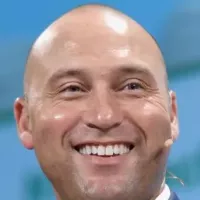
Derek Jeter nicknamed the Captain is a retired American professional...
Trending

8 minutes ago Will Zalatoris Withdraws from Cognizant Classic Due to Back Issues, Seeks Pain Relief
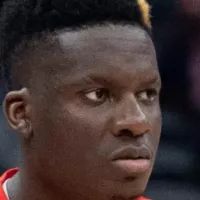
8 minutes ago Ayton's Importance to Lakers, Trade Rumors Swirl, and Recent Double-Double Performance
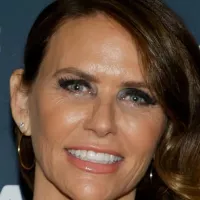
1 hour ago Bradley Whitford and Amy Landecker Star in New Rom-Com 'For Worse': A Sneak Peek

1 hour ago Crispin Glover, 'Back to the Future' Actor, Faces Battery and Fraud Lawsuit
1 hour ago Broadcom Launches BroadPeak, Stock Slides Amid AI Chip Deal Rumors, Expands 6G Portfolio
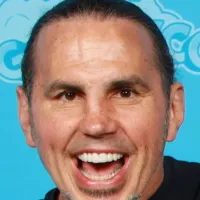
2 hours ago WrestleMania 42 tickets on sale, Matt Hardy involved; TKO faces criticism.
Popular

Jesse Jackson is an American civil rights activist politician and...

Susan Rice is an American diplomat and public official prominent...

Barack Obama the th U S President - was the...

XXXTentacion born Jahseh Dwayne Ricardo Onfroy was a controversial yet...

Michael Joseph Jackson the King of Pop was a highly...

Michael Jordan widely considered one of basketball's greatest players significantly...
